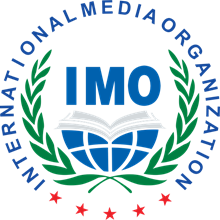While the number of journalists killed worldwide fell by almost half in 2019, journalists face ongoing risks and perpetrators enjoy almost total impunity for these crimes, according to UNESCO data.
Fewer journalists killed in 2019
The UNESCO Observatory of Killed Journalists recorded 56 journalist killings in 2019, compared with 99 in 2018 – the lowest annual toll in more than a decade. In total, UNESCO recorded 894 journalist killings in the decade from 2010 to 2019, an average of almost 90 per year.
Journalists were murdered in all regions of the world, with Latin America and the Caribbean recording 22 killings, the highest number, followed by 15 in Asia-Pacific, and 10 in Arab States.
Most journalists were killed outside of conflict zones
The figures show that journalists not only suffer extreme risks when covering violent conflict, but that they are also targeted when reporting on local politics, corruption and crime – often in their hometowns.
Almost two thirds (61%) of cases in 2019 occurred in countries not experiencing armed conflict, a notable spike in a wider trend in recent years, and a reversal of the situation of 2014, when this figure was one third. More than 90% of cases recorded in 2019 concerned local journalists, consistent with previous years. These trends were highlighted in UNESCO’s media campaign for the 2019 International Day to End Impunity for Crimes Against Journalists, #KeepTruthAlive.
Concerning trends are emerging in attacks on press freedom
A UNESCO report released in November 2019, “Intensified Attacks, New Defences,” shows that journalists are increasingly experiencing verbal and physical attacks in connection with their work. Recent years have been marked by an increase in imprisonment, kidnapping and physical violence, amid widespread rhetoric hostile to the media and journalists. Women journalists in particular are often the targets of online harassment and gender-based violence.
The overall aim of threats against journalists is to silence critical voices and restrict public access to information.
UNESCO is committed to journalist safety
UNESCO works to improve the safety of journalists and to combat impunity for crimes against them, including by leading the implementation of the UN Plan of Action on the Safety of Journalists and the Issue of Impunity.
The Intensified Attacks, New Defences report shows that very few of those who attack journalists are prosecuted. The impunity rate remains shockingly high worldwide at almost 90%, with fewer than one in eight cases recorded by UNESCO since 2006 currently listed as resolved.
In response to these figures, Audrey Azoulay, the Director-General of UNESCO, said, “UNESCO remains deeply troubled by the hostility and violence directed at all too many journalists around the world. As long as this situation lasts, it will undermine democratic debate.”


